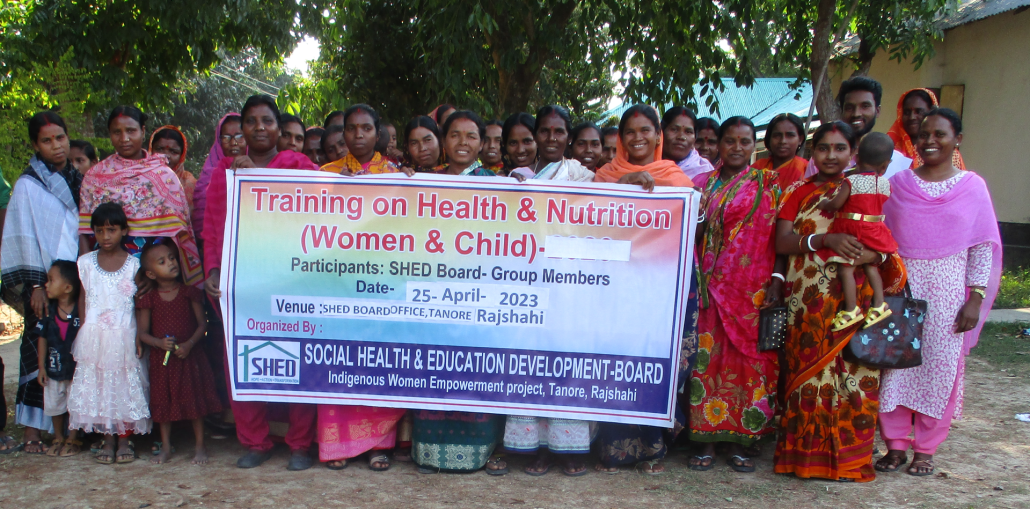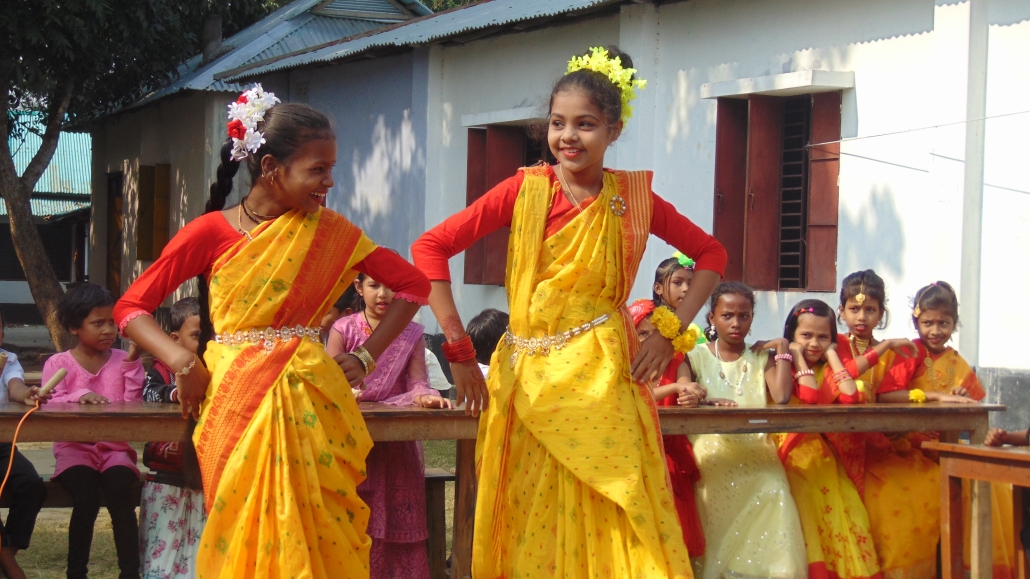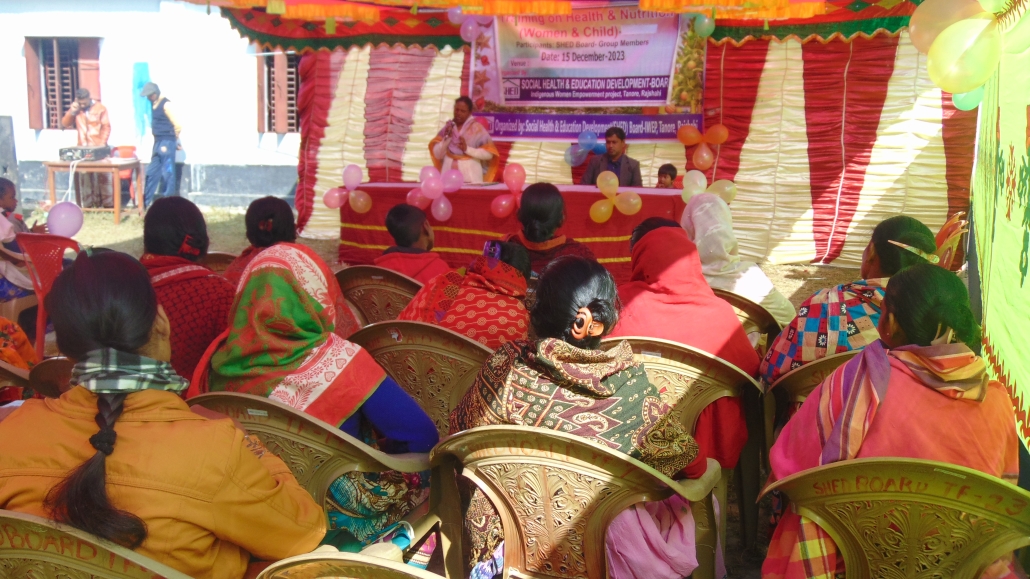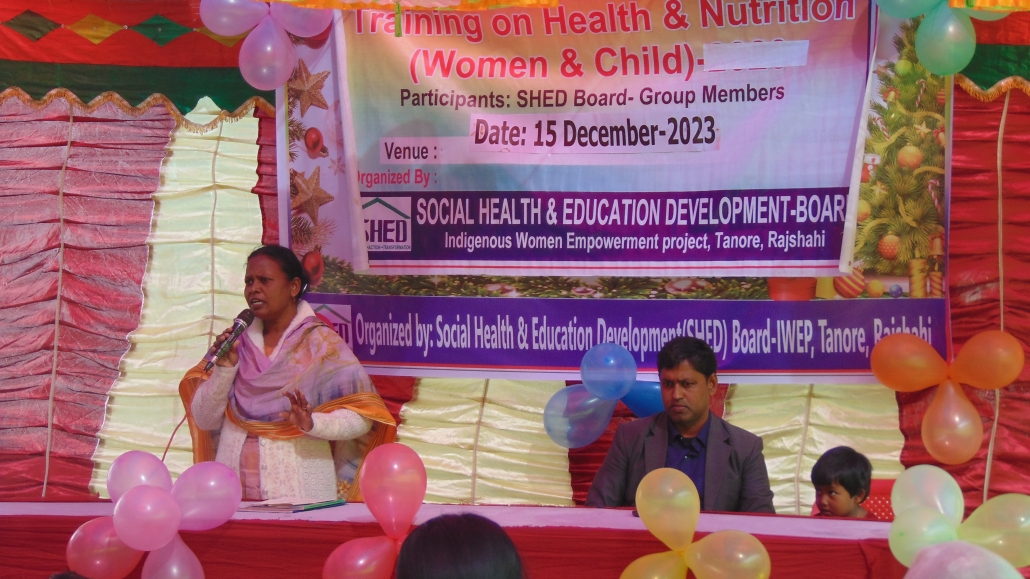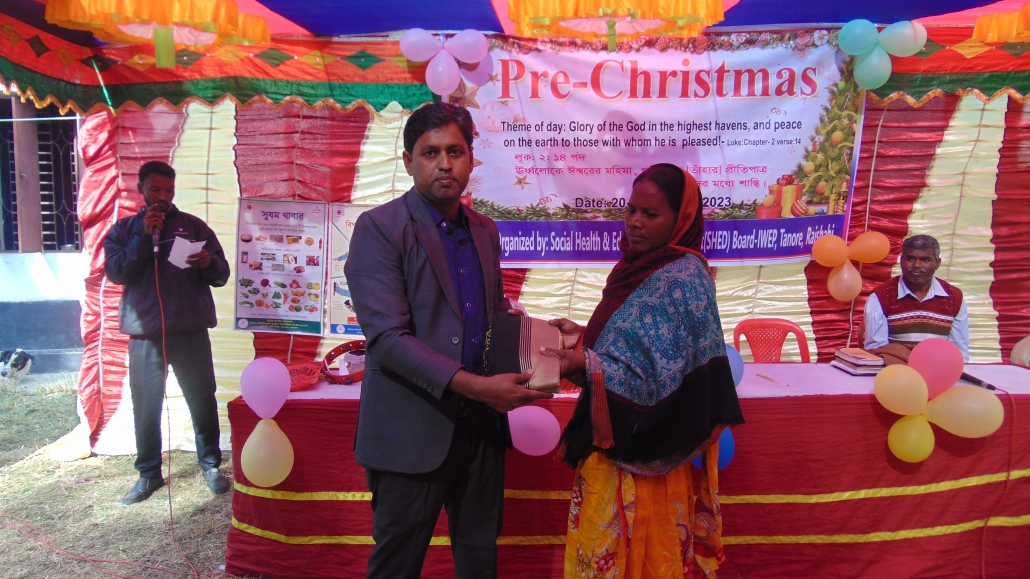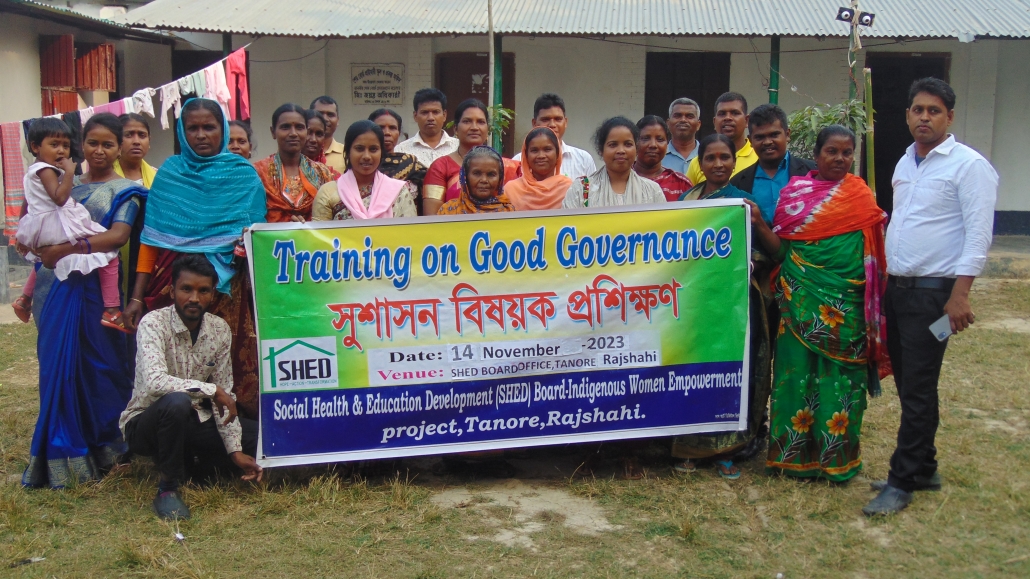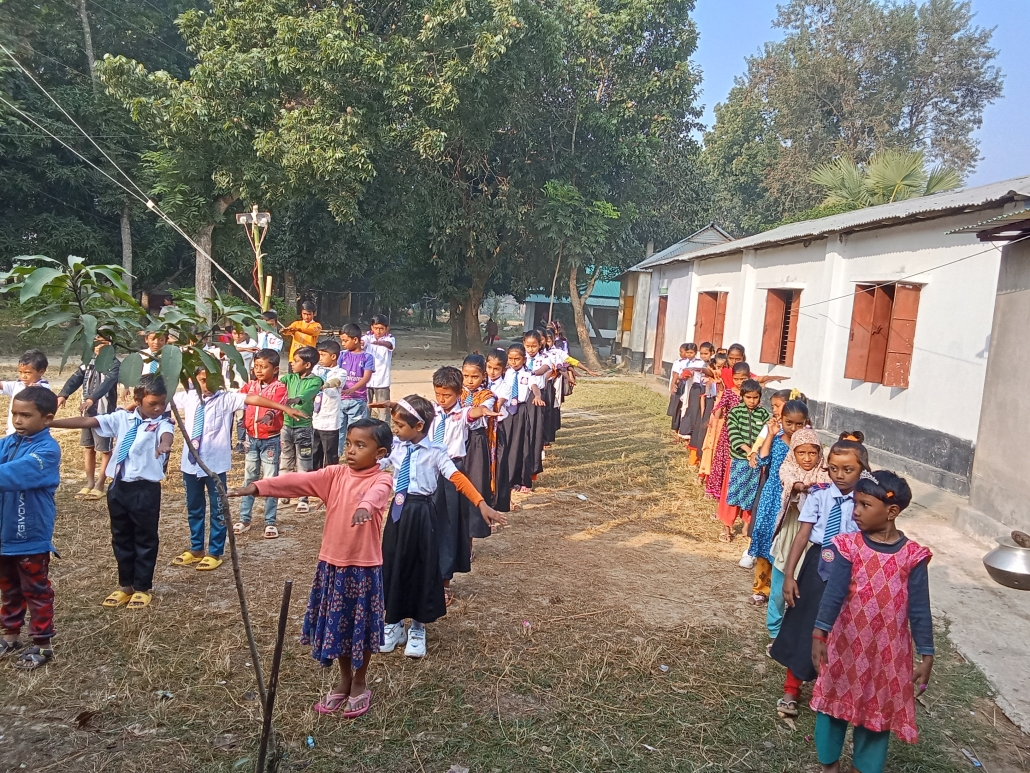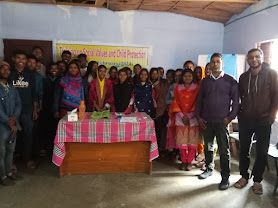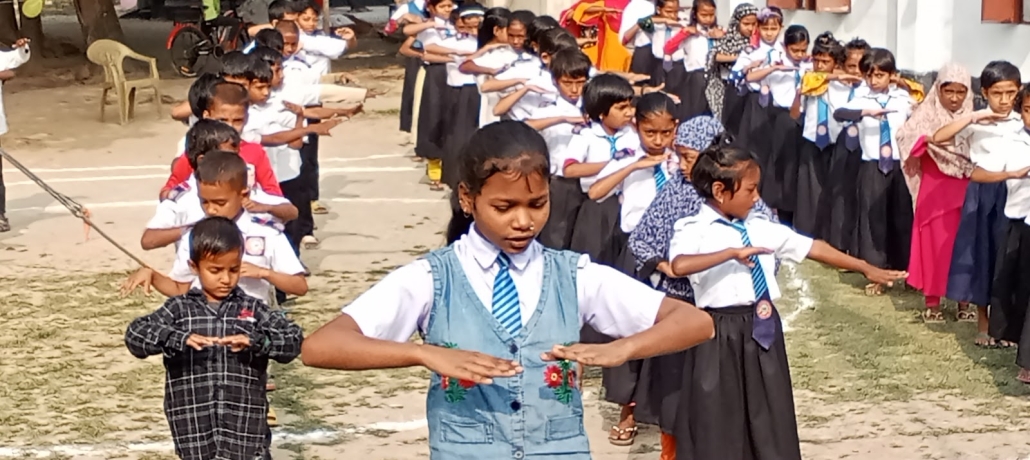Indigenous Women Empowerment Program (IWEP)
In the society Indigenous communities face disadvantages of various kinds. Development in education, health and the use of local resources to sustain the family through an increased income, is a goal that SHED Board seeks to achieve through the empowerment of women. Often women play a significant role to improve the situation of their families. Eliminating poverty in their own family will lead to a positive socio-economic change in the Indigenous communities.
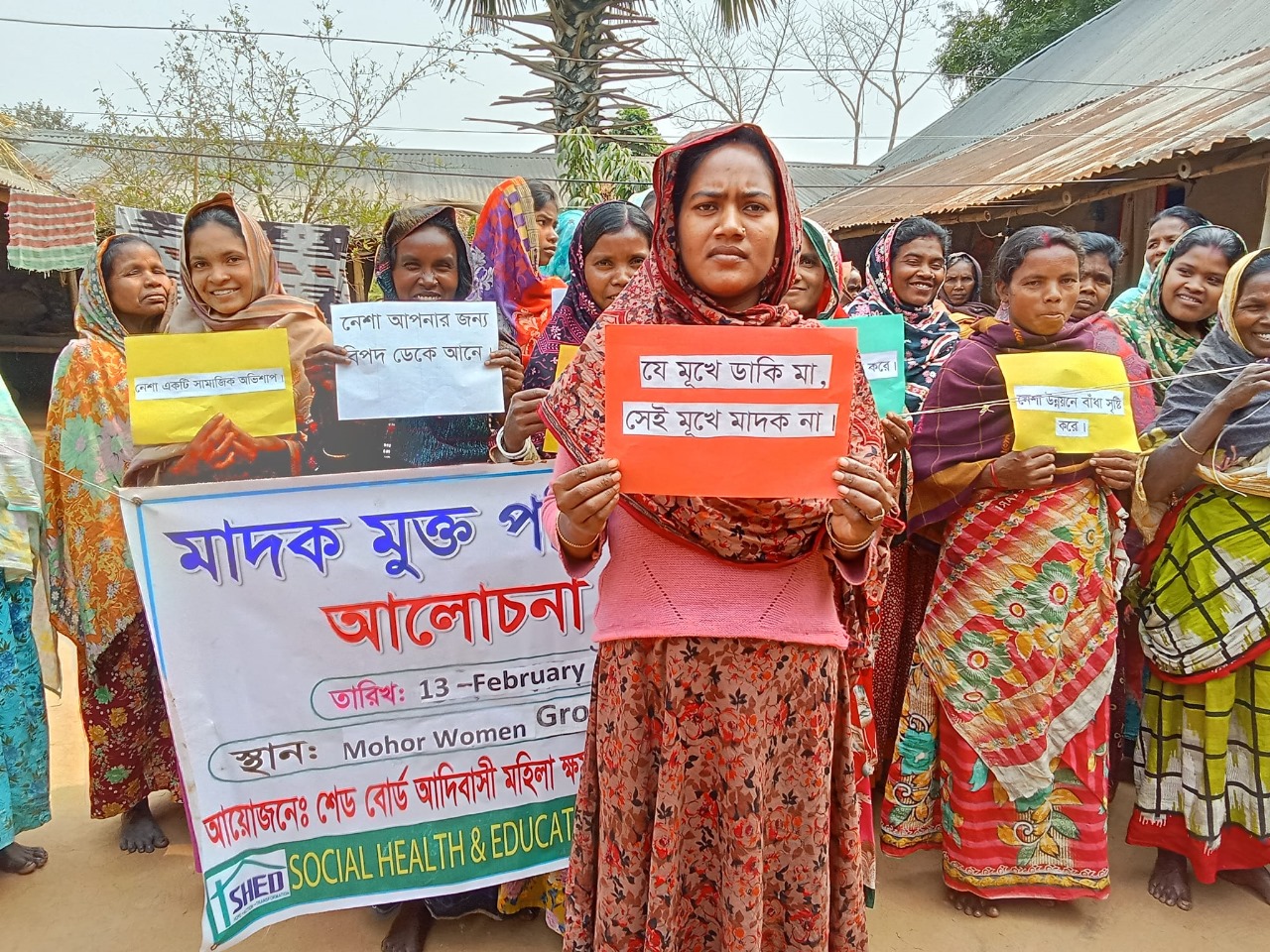
The Indigenous Women Empowerment Program (IWEP) in Rajshahi provides an opportunity for women of indigenous background to be equipped with knowledge and skills. By providing resources and income increasing capacities, through need based training and mobilising local resources, families are equipped to get out of poverty.
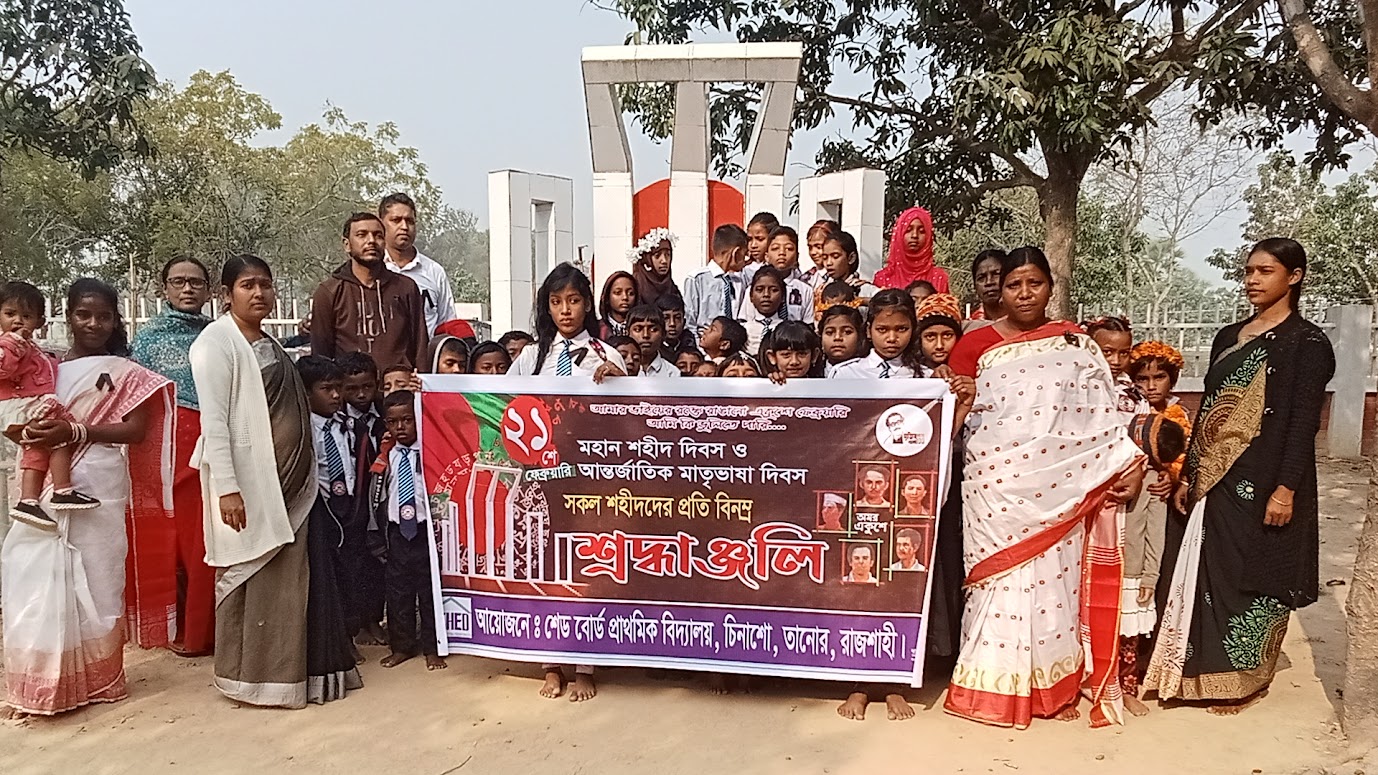
SHED Board has received a work permit from NGO affairs bureau in 2013 through which the start of IWEP in Rajshahi district was possible. Together with BBCS, which agreed to use the land of ABCS of ChapaiNawabgonj district, it was possible to establish a project office and a primary school, to start the IWEP. Five development workers were recruited to coordinate and run the IWEP programs as well as the school and teachers’ recruitment for the school (February 01, 2013).
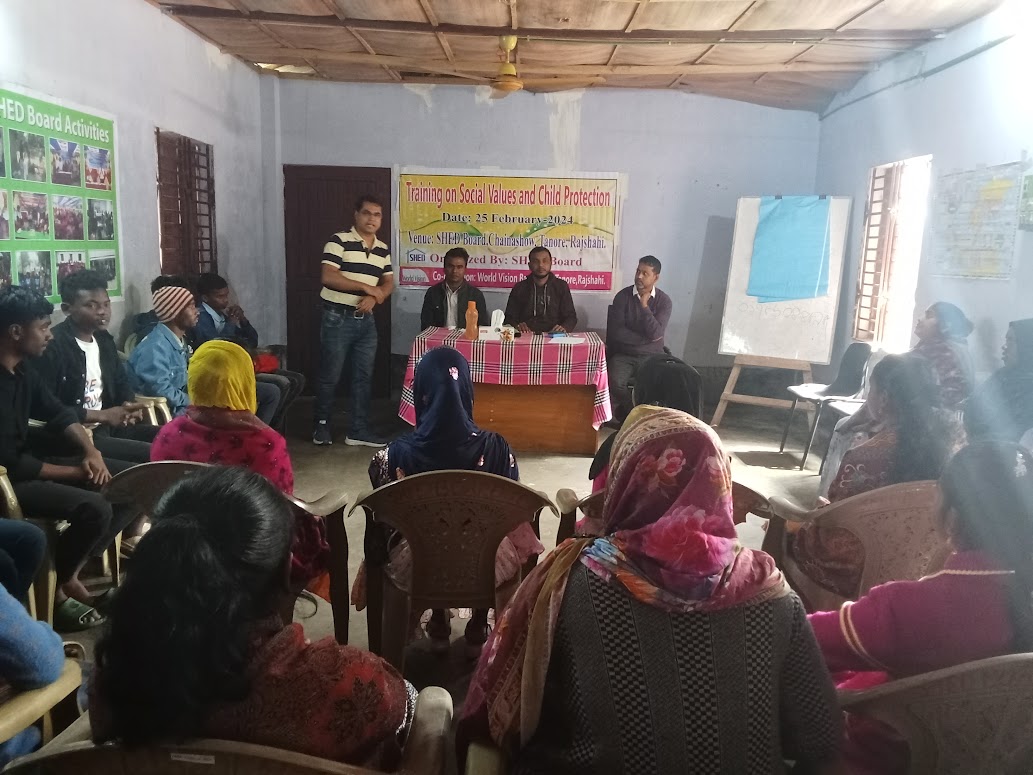
The project office is located at Chinashow village (Pachandor union, Rajshahi) covers the projects and activities of 20 villages of 4 unions out of 110 villages and 10 unions. The target groups are women of indigenous background, namely Santal, Malo, Mahali, Oraon, Munda, Mahato, Pahan, Karmokar etc. Throughout the year various development programs for the community were held.
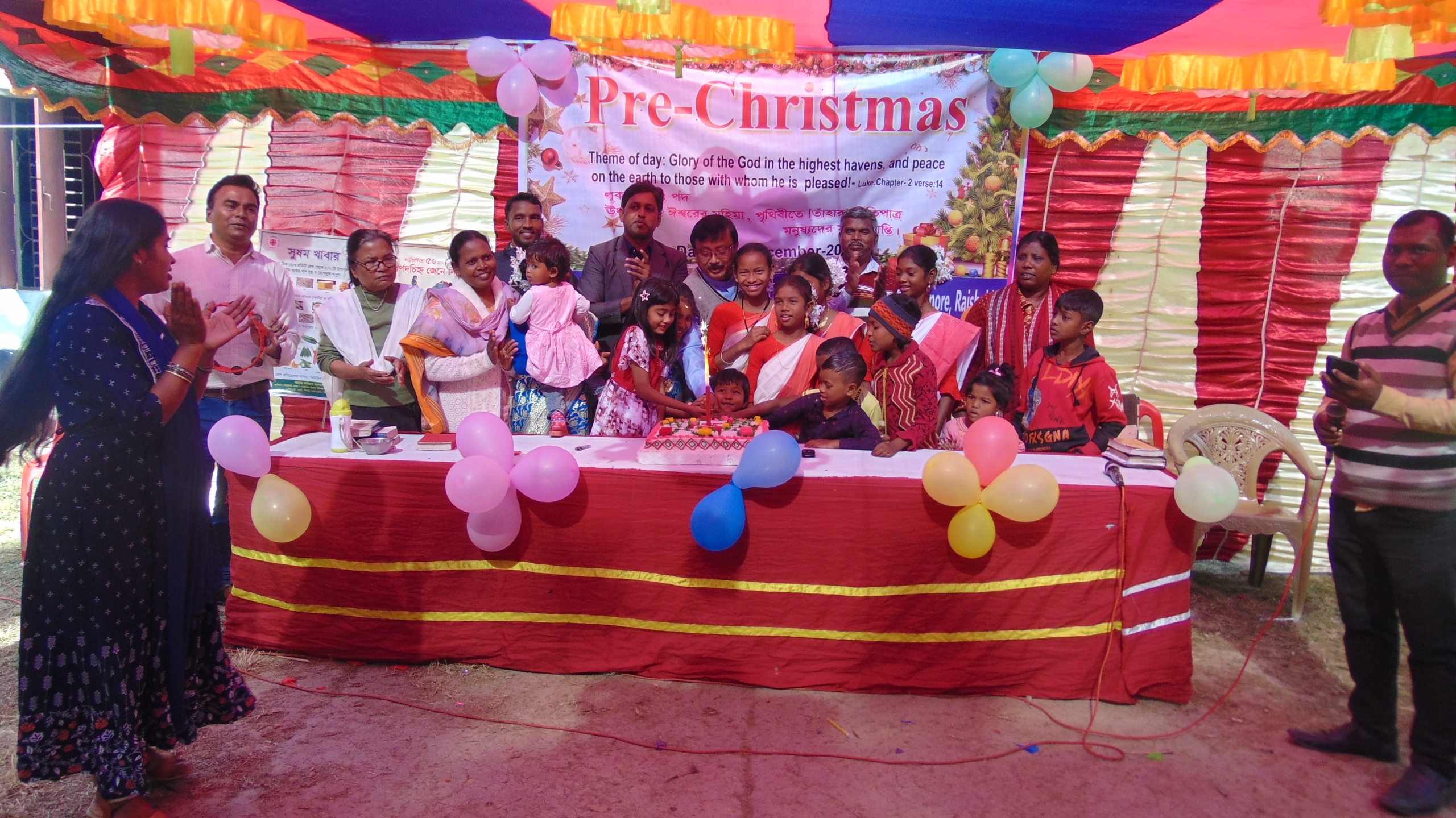
A variety of training programs were offered throughout the year:
- Training/ Awareness program: Creates awareness of the root cause for socio-economic disadvantages in order to increase knowledge how to overcome it.
- Leadership training: Teaches people about leadership skills (i.e. developing problem and conflict-solving skills) and the role of a leader in society (i.e. at home, at church, in the village).
- Teacher’s training: Provide teaching staff with professional skills and education resources. A variety of child-appropriate teaching methods increase the joy of students to learn as the teaching skills of teachers has improved.
- Credit management seminars: Encourage individuals and families to increase their level of savings and teaches about loan rules, proper use of funds, and repayment plans. Low-interest, long-term loans are provided to help people apply their learning.

